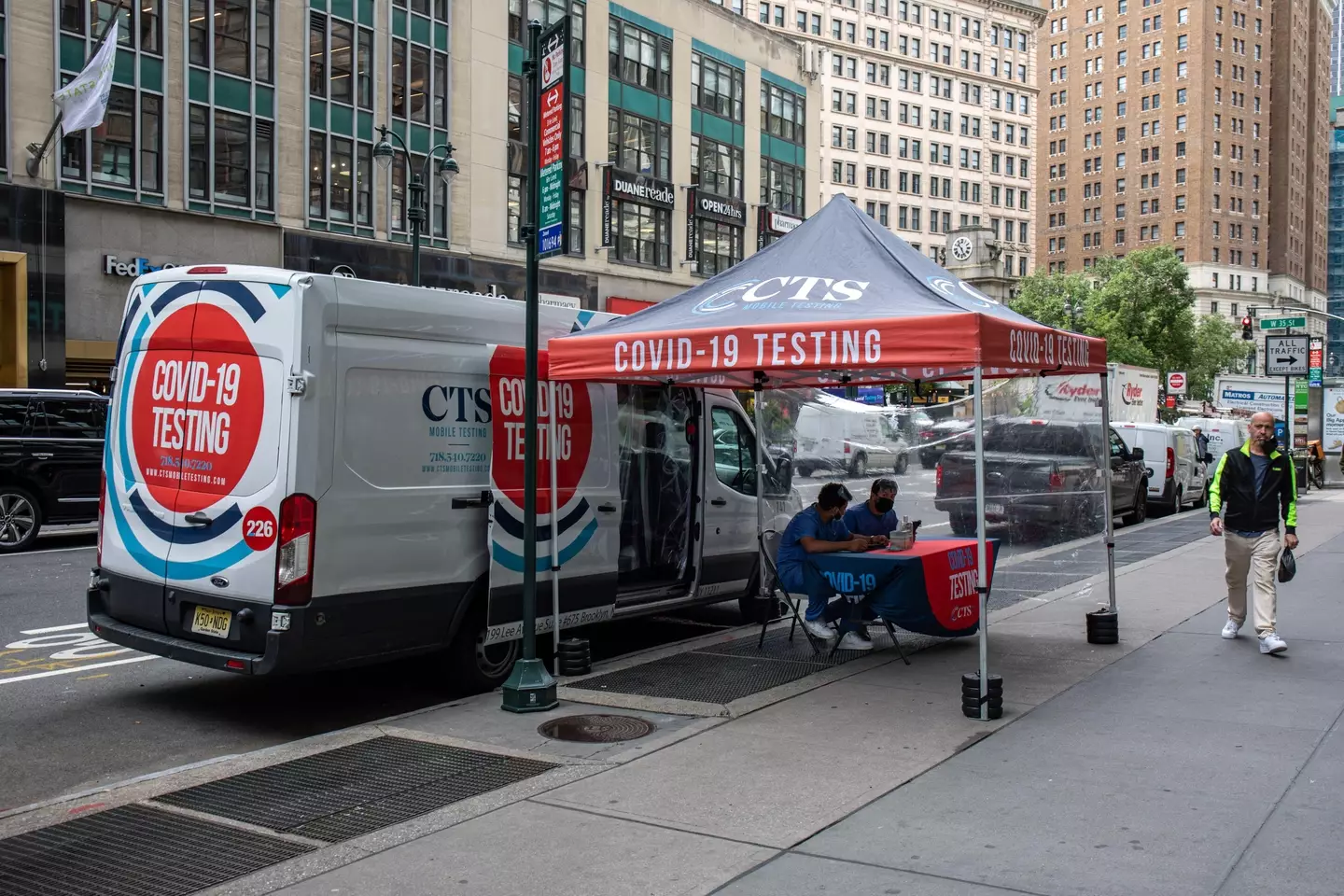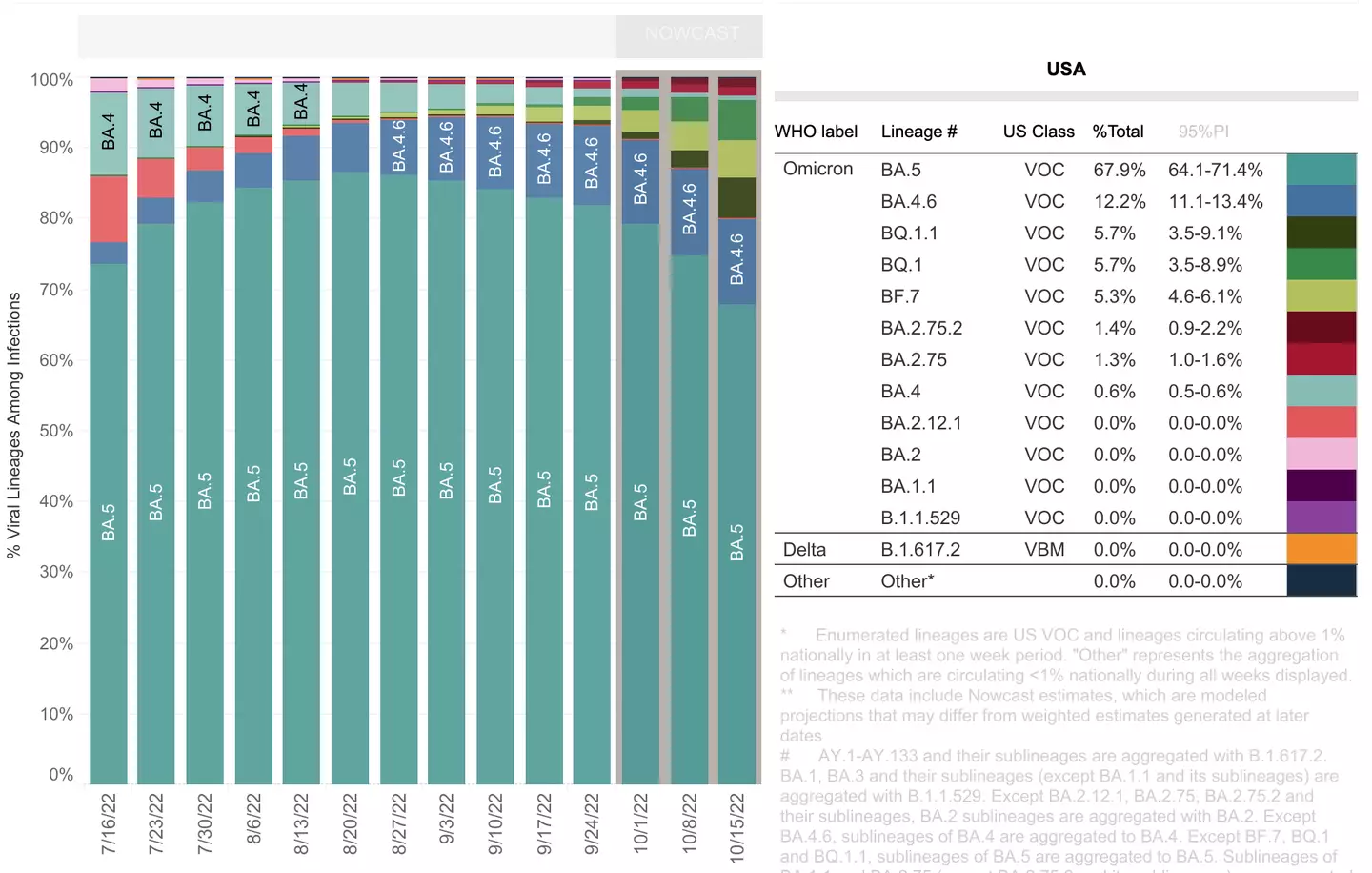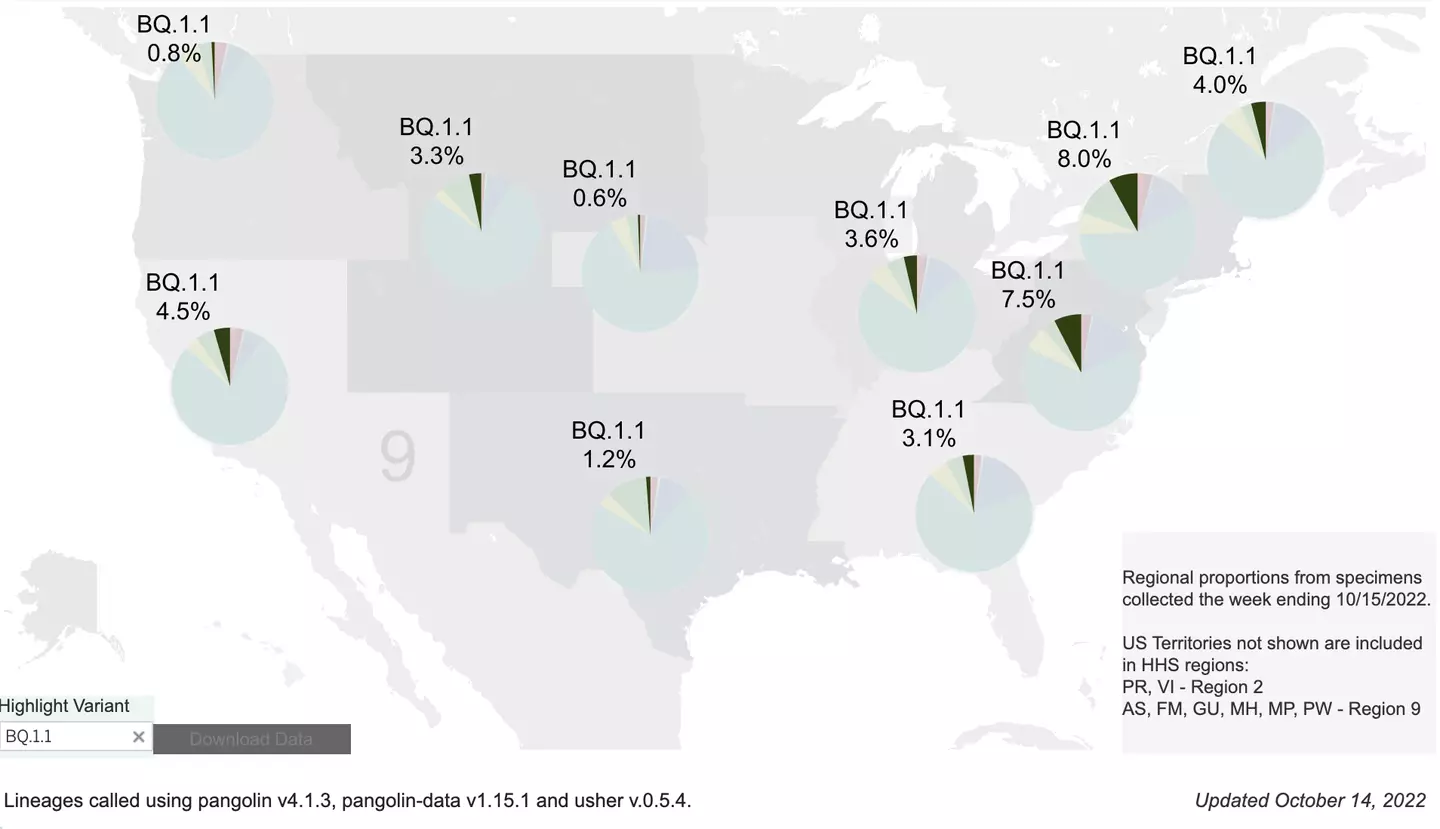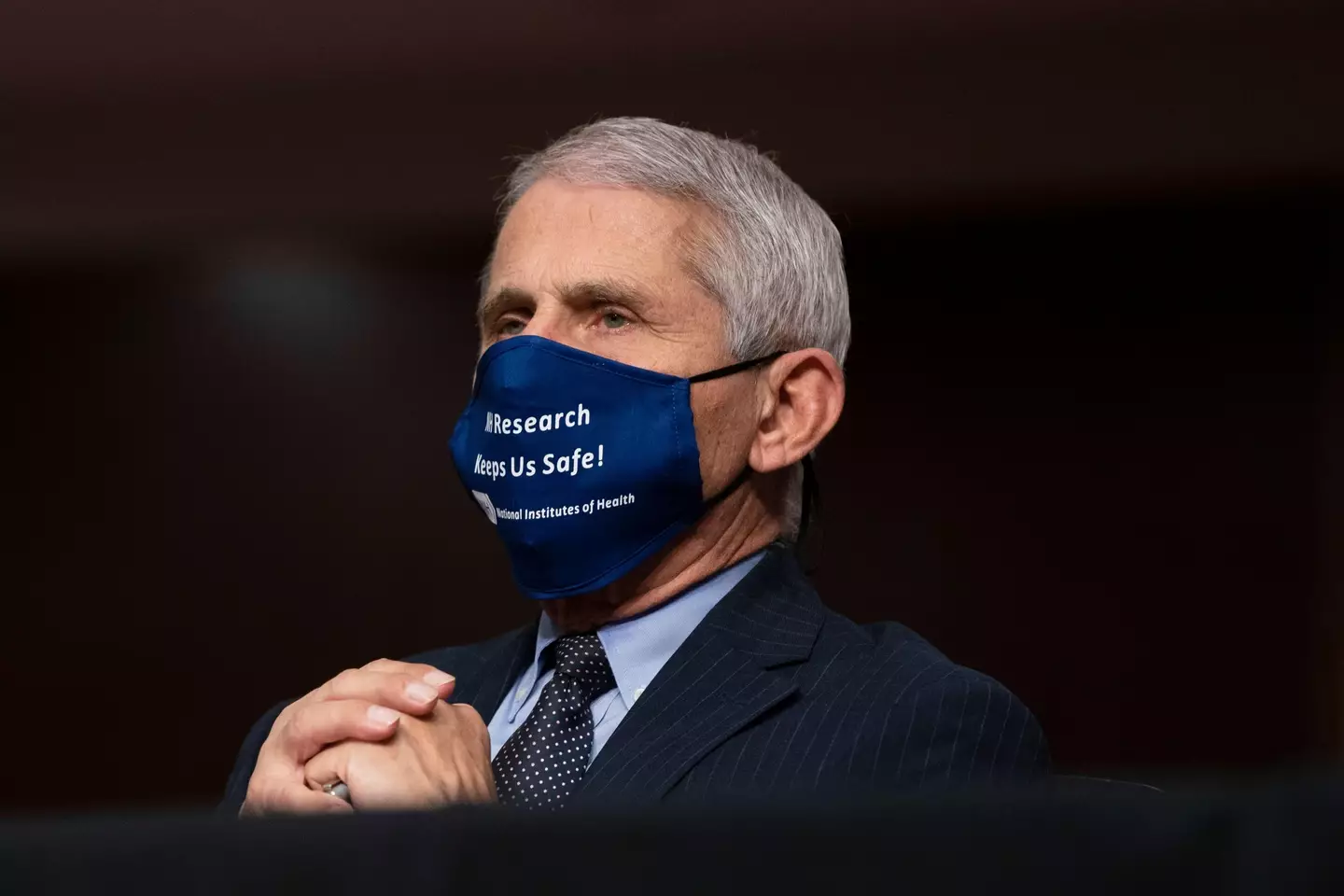
Scientists have revealed a new variant of coronavirus which has led to a surge in cases.
Recently you may have been feeling like the coronavirus pandemic is becoming a distant memory and lockdowns a thing of the past, but unfortunately it's far from over yet.
Coronavirus is once more rearing its ugly head in the form of a new variant which is causing a sharp rise in cases in the US.
Yesterday, 14 October, the Centers for Disease Control and Prevention (CDC), published updated estimates of how many new infections there've been across the US as a result of the new variant.
Advert
As we head into winter, many have already been in a state of dreaded anticipation as to how the cold weather could affect the number of COVID cases - cases known to spike in winter and those who test positive known to experience more severe symptoms too.
Scientists have already spoken out about the latest variants of the virus, warning variants will continue to 'accelerate' and will have an impact globally.
However, since August, when scientists were worried about the variant, BA.5, an even newer variant is now on the rise called BQ.1.

BQ.1 - first identified by scientists last month - and its sub-variant, BQ.1.1, now make up 5.7 percent each of all current coronavirus cases in the US according to the CDCP.
Together they make up over 10 percent of cases.
CDC spokesperson, Kristen Nordlund, reflected: "While BQ.1 and BQ.1.1. represent a small but fast-growing subset of the Omicron variant, BA.5 remains the dominant lineage in the United States."

Despite Omicron variants spreading quicker than the Delta variant, Omicron causes 'less severe illness and death, in general, according to data'.
However, the CDC states: "Viruses constantly change through mutation and sometimes these mutations result in a new variant of the virus. Some variations allow the virus to spread more easily or make it resistant to treatments or vaccines. As the virus spreads, it may change and may become harder to stop.
"Regardless of the variant, a surge in cases can impact healthcare resources
"Even if a variant causes less severe disease in general, an increase in the total number of cases could cause an increase in hospitalizations, put more strain on healthcare resources, and potentially lead to more deaths."

In an interview with CBS news, director of the National Institute of Allergy and Infectious Diseases and Chief Medical advisor to US President Joe Biden, Dr Anthony Fauci, explained: "When you get variants like that, you look at what their rate of increase is as a relative proportion of the variants, and this has a pretty troublesome doubling time.
"[...] As much as you want to feel good about the fact that cases are down, hospitalizations are down, we don't want to declare victory too prematurely.
"And that's the reason why we've got to keep our eye out on these emerging variants."

There is also a worry the B.Q.1 variants could mutate to override an antibody treatment given to adults and children to help prevent them contracting coronavirus named Evusheld.
Dr Fauci said: "That's the reason why people are concerned about BQ.1.1, for the double reason of its doubling time and the fact that it seems to elude important monoclonal antibodies."
However, there is not yet any specific data to show how Evusheld may be impacted.

Dr Fauci resolved: "The bad news is that there's a new variant that's emerging and that has qualities or characteristics that could evade some of the interventions we have. But, the somewhat encouraging news is that it's a BA.5 sub lineage, so there are almost certainly going to be some cross protection that you can boost up"
The doctor urged people to go out and get their latest coronavirus jab so they can help scientists mitigate against the new variants and sub-variants as best as they can.
If you’ve been affected by coronavirus and want up to date advice, visit the Gov.uk help page here. If you need medical help call NHS 111 or visit online
Topics: Coronavirus, Science, US News, Health